The middle years of this century marked a particularly intense time of crisis and change in European society. During this period (1930-1950), a broad intellectual and spiritual movement arose within the European Catholic community, largely in response to the secularism that lay at the core of the crisis. The movement drew inspiration from earlier theologians and philosophers such as Mohler, Newman, Gardeil, Rousselot, and Blondel, as well as from men of letters like Charles Peguy and Paul Claudel.
The group of academic theologians included in the movement extended into Belgium and Germany, in the work of men like Emile Mersch, Dom Odo Casel, Romano Guardini, and Karl Adam. But above all the theological activity during this period centered in France. Led principally by the Jesuits at Fourviere and the Dominicans at Le Saulchoir, the French revival included many of the greatest names in twentieth-century Catholic thought: Henri de Lubac, Jean Danielou, Yves Congar, Marie-Dominique Chenu, Louis Bouyer, and, in association, Hans Urs von Balthasar.
It is not subsequent folklore has those theologians represented any sort of self-conscious "school": indeed, the differences among them, for example, between Fourviere and Saulchoir, were important. At the same time, most of them were united in the double conviction that theology had to speak to the present situation, and that the condition for doing so faithfully lay in a recovery of the Church's past. In other words, they saw clearly that the first step in what later came to be known as aggiornamento had to be rediscovery of the riches of the whole of the Church's two-thousand-year tradition. According to de Lubac, for example, all of his own works as well as the entire Sources chretiennes collection are based on the presupposition that "the renewal of Christian vitality is linked at least partially to a renewed exploration of the periods and of the works where the Christian tradition is expressed with particular intensity."
In sum, for the ressourcement theologians theology involved a "return to the sources" of Christian faith, for the purpose of drawing out the meaning and significance of these sources for the critical questions of our time. What these theologians sought was a spiritual and intellectual communion with Christianity in its most vital moments as transmitted to us in its classic texts, a communion that would nourish, invigorate, and rejuvenate twentieth-century Catholicism.
The ressourcement movement bore great fruit in the documents of the Second Vatican Council and has deeply influenced the work of Pope John Paul II and Cardinal Joseph Ratzinger, Prefect of the Sacred Congregation of the Doctrine of the Faith.
The present series is rooted in this twentieth-century renewal of theology, above all as the renewal is carried in the spirit of de Lubac and von Balthasar. In keeping with that spirit, the series understands ressourcement as revitalization: a return to the sources, for the purpose of developing a theology that will truly meet the challenges of our time. Some of the features of the series, then, will be:
a return to classical (patristic-mediaeval) sources;
a renewed interpretation of St. Thomas;
a dialogue with the major movements and thinkers of the twentieth century, with particular attention to problems associated with the Enlightenment, modernity, liberalism.
The series will publish out-of-print or as yet untranslated studies by earlier authors associated with the ressourcement movement. The series also plans to publish works by contemporary authors sharing in the aim and spirit of this earlier movement. This will include interpretations of de Lubac and von Balthasar and, more generally, any works in theology, philosophy, history, literature, and the arts which give renewed expression to an authentic Catholic sensibility.
The editor of the Ressourcement series, David L. Schindler, is Gagnon Professor of Fundamental Theology at the John Paul II Institute in Washington, D.C., and editor of the North American edition of Comrnunio: International Catholic Review, a federation of journals in thirteen countries founded in Europe in 1972 by Hans Urs von Balthasar, Jean Danielou, Henri de Lubac, Joseph Ratzinger, and others.
available
Mysterium Paschale
by Hans Urs von Balthasar
The Letter on Apologetics and History and Dogma
by Maurice Blondel
Prayer: The Mission of the Church
Jean Danielou
Letters from Lake Como:
Explorations in Technology and the Human Race
by Romano Guardini
The Portal of the Mystery of Hope
Charles Peguy
In the Beginning:
A Catholic Understanding of the Story of Creation and the Fall
by Cardinal Joseph Ratzinger
Hans Urs von Balthasar: A Theological Style
by Angelo Scola
forthcoming
The Discovery of God
Henri de Lubac
The Mission of the Church
JEAN DANIELOU
Translated by
David Louis Schindler, Jr.



xi
xv
PART ONE
THE PRIMACY OF GOD
PART TWO
ADVENT AND HOPE
PART THREE
THE MYSTERIES OF CHRIST THE REDEEMER
PART FOUR
THE GROWTH OF THE CHURCH
 nyone who knew the author, or rather narrator, of this book as well as I years we shared a desk in a theology classroom and would often secretly read the Fathers during boring lec find him living again in each of these short chapters. Others will be delighted with the rich diversity of his ideas and the accessibility of his language, though they may be somewhat disconcerted by the sudden changes of points of view and by the apparent untidiness in the that is, the inner form of this extraordinary man becomes real before their eyes. Then they will realize that they are standing before a fountain that constantly shoots up and pours forth on all sides. In fact, they are really under a waterfall, the power and plenitude of which they sense, without being able to grasp.
nyone who knew the author, or rather narrator, of this book as well as I years we shared a desk in a theology classroom and would often secretly read the Fathers during boring lec find him living again in each of these short chapters. Others will be delighted with the rich diversity of his ideas and the accessibility of his language, though they may be somewhat disconcerted by the sudden changes of points of view and by the apparent untidiness in the that is, the inner form of this extraordinary man becomes real before their eyes. Then they will realize that they are standing before a fountain that constantly shoots up and pours forth on all sides. In fact, they are really under a waterfall, the power and plenitude of which they sense, without being able to grasp.
In purely human terms, Danielou was a bundle of energy, like quicksilver, open to any challenge: an idea; a new plan; but still more, a fellow human being, especially when the person concerned was in spiritual need. He was a self-consuming flame, ready to burn himself up for some project which fascinated him and to which he would dedicate himself with incredible concentration for a couple of months, or for one of the countless areas of his apostolate. Day or night he found time for people of every kind: for the members of his Cercle Saint-Jean Baptiste, which was concerned with dialogue with other religions and cultures (especially Islam); for philosophers, writers, and artists; and also for those dubious circles that he entered with Parzival-like never shunned contact with that brought him so much vicious calumny at the time of his death.

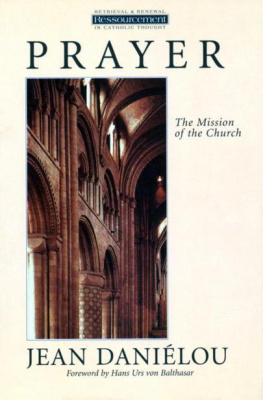


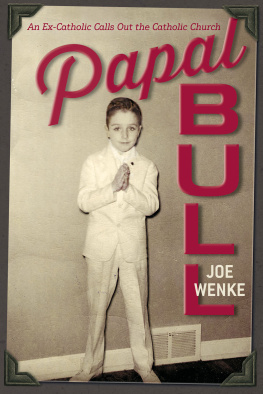
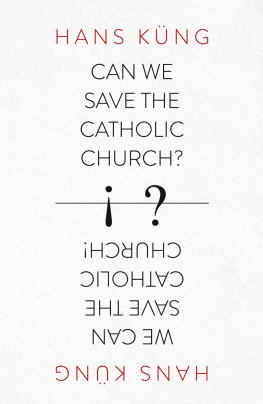
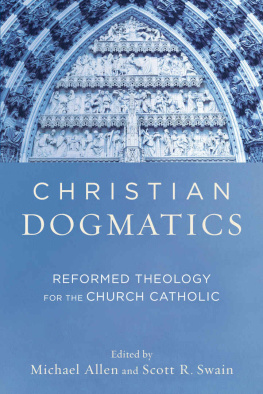
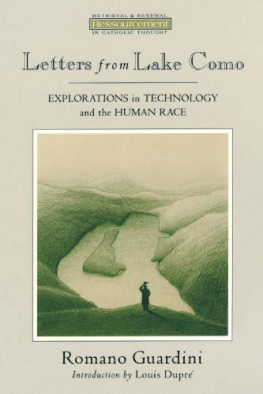
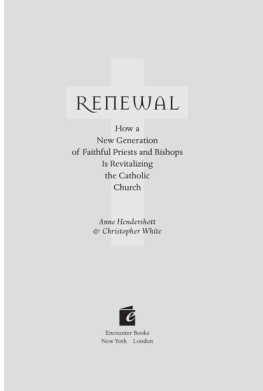
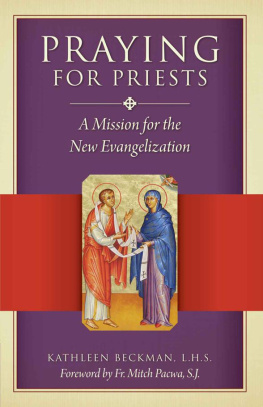
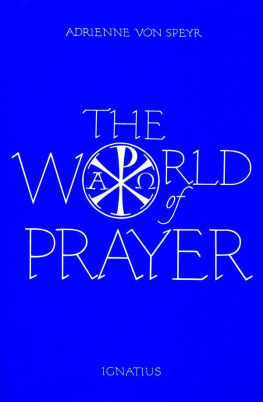
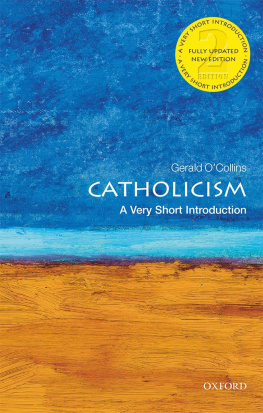


 nyone who knew the author, or rather narrator, of this book as well as I years we shared a desk in a theology classroom and would often secretly read the Fathers during boring lec find him living again in each of these short chapters. Others will be delighted with the rich diversity of his ideas and the accessibility of his language, though they may be somewhat disconcerted by the sudden changes of points of view and by the apparent untidiness in the that is, the inner form of this extraordinary man becomes real before their eyes. Then they will realize that they are standing before a fountain that constantly shoots up and pours forth on all sides. In fact, they are really under a waterfall, the power and plenitude of which they sense, without being able to grasp.
nyone who knew the author, or rather narrator, of this book as well as I years we shared a desk in a theology classroom and would often secretly read the Fathers during boring lec find him living again in each of these short chapters. Others will be delighted with the rich diversity of his ideas and the accessibility of his language, though they may be somewhat disconcerted by the sudden changes of points of view and by the apparent untidiness in the that is, the inner form of this extraordinary man becomes real before their eyes. Then they will realize that they are standing before a fountain that constantly shoots up and pours forth on all sides. In fact, they are really under a waterfall, the power and plenitude of which they sense, without being able to grasp.